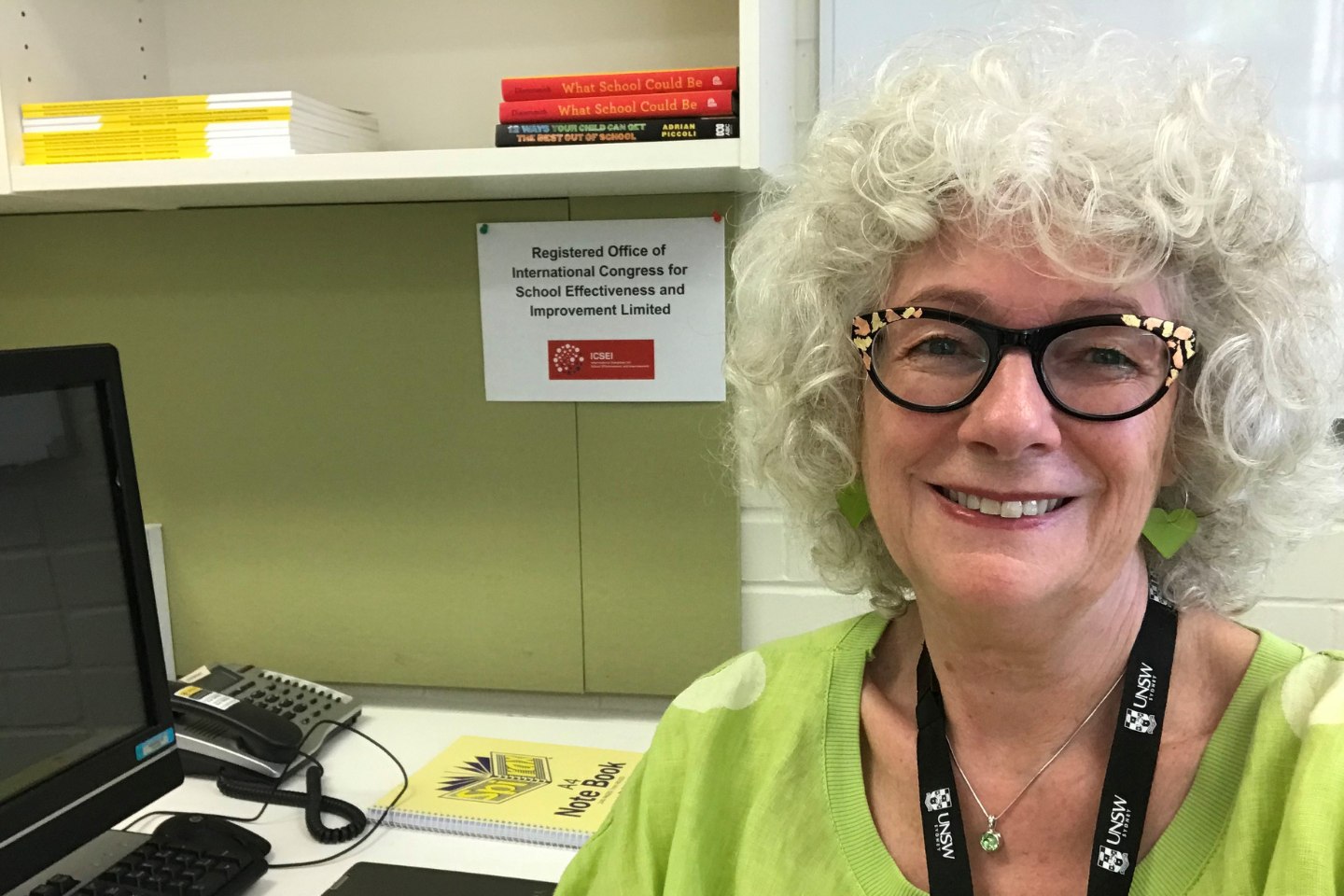Transforming education systems: now there’s a guide book

Wednesday, 30 Oct 2024
Dr Sheridan Dudley’s work has set progressive directions for sustainable urban development, environmental preservation, community services, government departments, and education across the sectors. Her insider’s guide to developing policy to transform systems will be launched at Research Conference 2025.
Dr Dudley’s international reputation has been built over decades, including as one of 5 public sector reform experts invited to work on a white paper for South Africa’s Mandela Government.
Her enthusiasm for applying knowledge to benefit society is the kind that has produced valuable resources and change across her professional life.
In the nineties, she was working with Wuhan Iron and Steel University in China, helping to develop and deliver postgraduate courses to industry managers. The university subsequently translated and published her book on organisation theory and behaviour.
The week Discover conducted this interview, Dr Dudley was excited to see the first plane take off from a new airport in developing western Sydney, 7 years after she guided the then New South Wales government’s Vision 2056 statement for the region.
She also has a new book with her publishers – Politicians and Education Policy: Why It Matters for Whole System Improvement – and is preparing for Research Conference 2025, which will focus on transforming learning systems.
Dr Dudley, who has worked in government policy and advisory roles in 3 Australian jurisdictions, will release a new framework at the conference in February.
The Framework for Whole System Reform Policy Development is designed for use by politicians, policymakers, key stakeholders, practitioners and researchers working to transform education systems.
The conference presentation will also include Dr Dudley’s newly developed 10 guiding principles.
Discover put a series of questions to Dr Dudley.
Discover (D): You worked closely with Adrian Piccoli when he was a new education minister in NSW and you were a new chief of staff, so an insider to it all. In your conference abstract, you refer to the complex ‘policy dance’ between a minister and the department. Did you develop these resources for a better process?
Sheridan Dudley (SD): There’s no guidebook for ministers. You’ve made all these election promises, and so, when you – the minister and her or his staff – get into government, the first question is ‘how do we actually turn that into a system-changing policy?’
The reason I wrote it, is this is what I would have wanted to have.
D: Who will get the greatest benefit from the framework and guiding principles?
SD: I think ministers and their staff will find it extremely useful. Policy-makers in government departments and education authorities will also find it useful because it will help them understand what goes on in the minister’s office so when they work with the minister’s office in terms of making policy, they can do it more effectively.
I think it will also help appeal to stakeholders because quite often stakeholders don’t understand where they’re positioned in the system and how they relate.
D: Is there a use for researchers?
SD: One of the interesting things about being in a minister’s office is so many people have done great research. They want to come and tell a minister all about it, but it might not relate to what the minister’s doing, and it’s so academic that you aren’t able to understand what they’re talking about and how it might provide a useful evidence base for the reforms the minister wants to undertake.
What I’ve tried to do is show how ministers and their officers use research in order to develop policy and at what point, so that they, and researchers, might engage more collaboratively in the process.
D: You have a book coming out soon that looks at developing policy to create large scale system change. But what happens next; how do you achieve cultural change in developing a mindset to ensure broad adoption of that policy?
SD: I’m not a huge fan of saying we have to change mindsets to get system change; changing mindsets basically says you have to get people’s minds on board before you can change the system. And in my experience, that’s not actually how it works.
It’s about inspiring people so they see the vision and say, ‘Oh yes, I want one of those’. And when people say that and you provide system change which supports them to get there, then it’s easy.
My view is – and this comes from Professor Barry Stein – 80% of getting change is changing the systems and processes; 10% is getting people on board and 10% you can’t do anything about, so you don’t bother.
You’ve got to ask what systems and processes do we need to put in place to deliver outcomes for teachers, schools and students, which is where the impact of education policy rests.
What you need to do is to change the system to make it easier for them to do their jobs and to stop doing stuff that isn't useful.
So I don't start from the premise of changing people's mindsets, but I do say that you have to provide leadership around this and – as I will talk about in my presentation and as my research shows – ministerial leadership is essential for system change.
Learn more
Research Conference 2025 is being held in Melbourne on February 6 and 7. Visit the website to see speakers and the program or register from here.